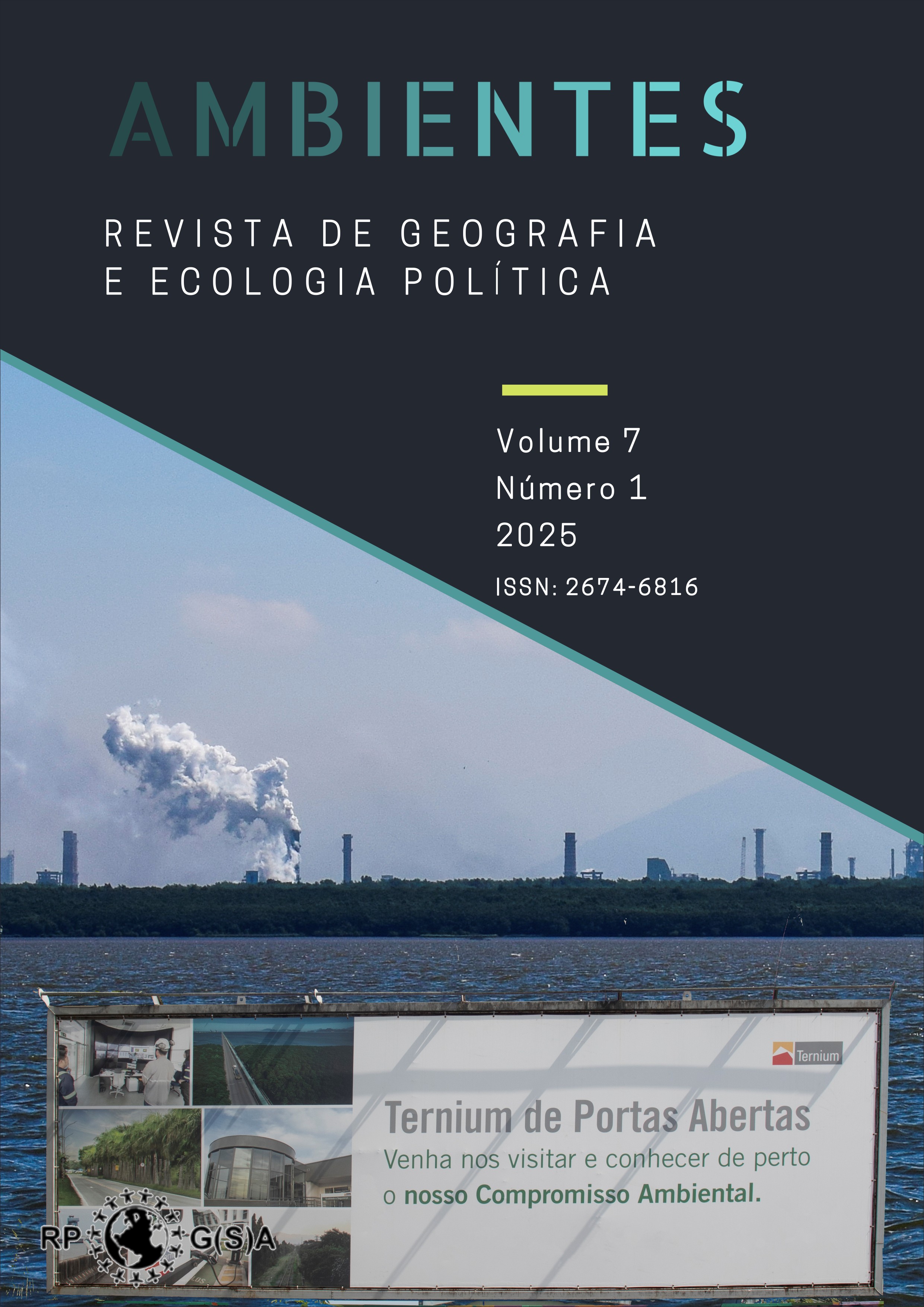Social movements and confronting the environmental crisis in the 21st century: Considerations on the intersection between environmentalism and the struggle against social inequalities based on two cases
DOI:
https://doi.org/10.48075/amb.v7i1.33177Abstract
The environmental crisis experienced in the 21st century, permeated by inequalities in the way it is experienced, gives space to the junction between environmental struggles and the fight against social inequalities. In this paper, the main objective is to understand the intersections between environmentalist themes and the struggles against territorial, race and class inequalities, in theoretical terms and with empirically with help of the practice of two social movements involved with food issues, the Landless Rural Workers Movement (MST) and Slow Food Brasil. The research was carried out with a bibliographical review, documentary analysis and interviews with members of the second movement. It was noticed that the MST, with four decades of existence, environmentalized itself over time, by incorporating agroecology into the class struggle, and thus became closer to peasant knowledge. Slow Food Brazil was founded in Italy with environmental concerns in its themes, but in the period in which it arrived in Brazil, it more intensely incorporated concerns with social equality and became closer to class struggles and decolonial agendas. Both processes confirm the potential gain when thinking about the environmental issue together with that of social equality, from a decolonial perspective.
Keywords: Landless Rural Workers Movement; Slow Food Brazil; Environmental struggles; Food activism; Class struggle.
Downloads
Published
How to Cite
Issue
Section
License

This work is licensed under a Creative Commons Attribution-NonCommercial-ShareAlike 4.0 International License.
Aviso de Direito Autoral Creative Commons
Política para Periódicos de Acesso Livre
Autores que publicam nesta revista concordam com os seguintes termos:
1. Autores mantém os direitos autorais e concedem à revista o direito de primeira publicação, com o trabalho simultaneamente licenciado sob a Licença Creative Commons Attribution que permite o compartilhamento do trabalho com reconhecimento da autoria e publicação inicial nesta revista.2. Autores têm autorização para assumir contratos adicionais separadamente, para distribuição não-exclusiva da versão do trabalho publicada nesta revista (ex.: publicar em repositório institucional ou como capítulo de livro), com reconhecimento de autoria e publicação inicial nesta revista.
3. Autores têm permissão e são estimulados a publicar e distribuir seu trabalho online (ex.: em repositórios institucionais ou na sua página pessoal) a qualquer ponto antes ou durante o processo editorial, já que isso pode gerar alterações produtivas, bem como aumentar o impacto e a citação do trabalho publicado (Veja O Efeito do Acesso Livre).
Licença Creative Commons
Esta obra está licenciada com uma Licença Creative Commons Atribuição-NãoComercial-CompartilhaIgual 4.0 Internacional, o que permite compartilhar, copiar, distribuir, exibir, reproduzir, a totalidade ou partes desde que não tenha objetivo comercial e sejam citados os autores e a fonte.


